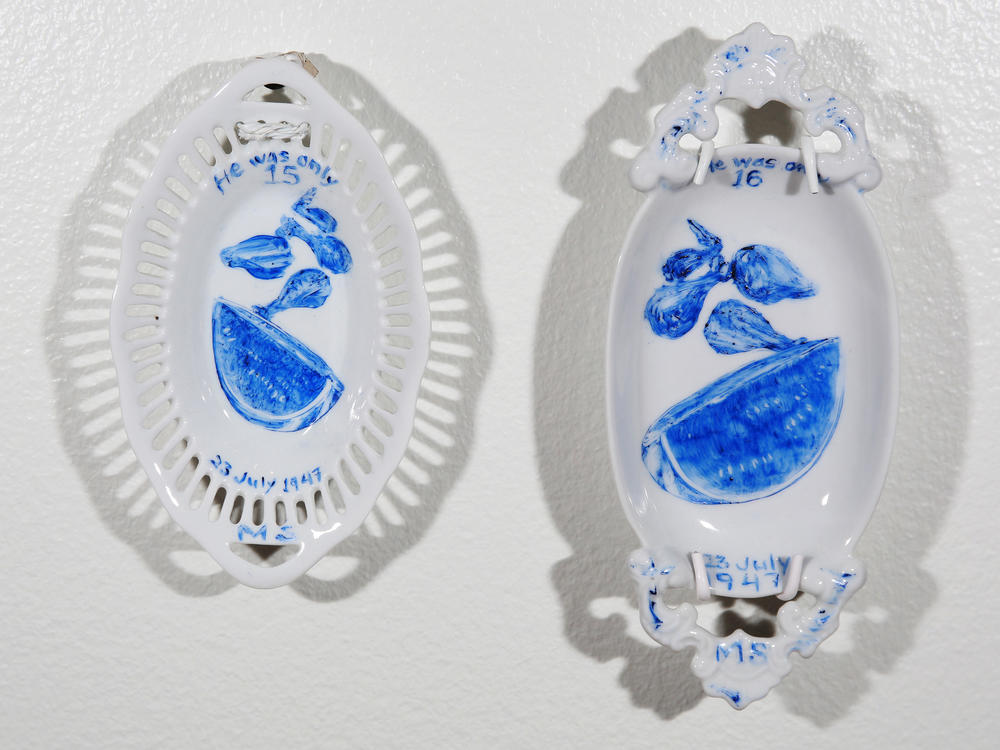Section Branding
Header Content
Opinion: Artist Julie Green, who depicted humanity of death row inmates, has died
Primary Content
Julie Green painted hamburgers. And apple pie, beef-and-cheese enchiladas, bologna sandwiches, a medium-rare Chateaubriand, a bag of Jolly Ranchers, a single apple, a pack of Pall-Malls.
The artist, who was also a professor at Oregon State University, had read about the "last meals" some prisoners on Death Row can request to eat just before they are executed. In 2000, Julie Green began to paint some of those meals in cobalt blue images on second-hand plates for a project they called "The Last Supper."
"Menus provide clues on region, race, and economic background," they said in a statement for their show, which was on display at the Bellevue Arts Museum in Washington state when Julie Green died this month of cancer at the age of 60.
"A family history becomes apparent," they said, "when (the) Indiana Department of Correction adds, 'He told us he never had a birthday cake so we ordered a birthday cake for him.' "
Many murders have been committed by people who did have birthday cakes. But it makes no excuse for murder to wonder if the person convicted of that monstrous crime might have somehow been different if they'd had the kind of life that included a birthday cake before they got to Death Row.
Julie Green said they knew they could have painted the last meals of those who were murdered. They saw "The Last Supper" as an art piece, not an argument.
"In collecting the menus, I do see information about the crime," they once told the Houston Chronicle. "While painting each plate, I am painfully aware of the suffering it represents, starting with the victim, their family, the inmate, the inmate's family, and the slight possibility of error that the person executed was innocent."
Julie Green worked on some plates as soon as someone was executed, and sometimes would paint a meal long past, like the fried chicken two Black teenagers in Mississippi, 15 and 16 years old, requested before being electrocuted for murder in 1947.
When they began "The Last Supper," they'd hoped to paint 50 plates a year until the death penalty had been abolished. But capital punishment is still the law in 27 states, and for the federal government and U.S. military. Julie Green painted their 1000th plate last month. Those sharp, blue-lined images of simple comfort foods — mashed potatoes, cold milk — requested by people about to be executed for horrific crimes, may remind us how we all are made of flesh, blood, and dreams.
Copyright 2021 NPR. To see more, visit https://www.npr.org.

